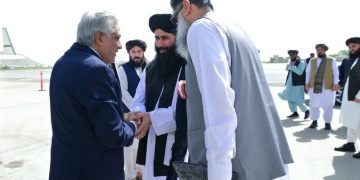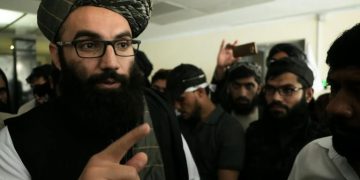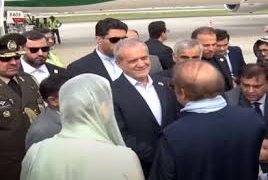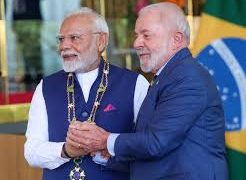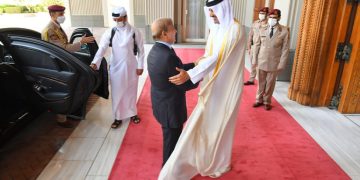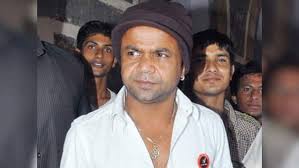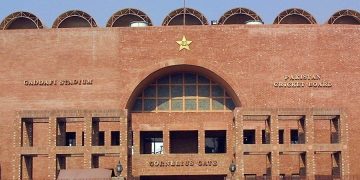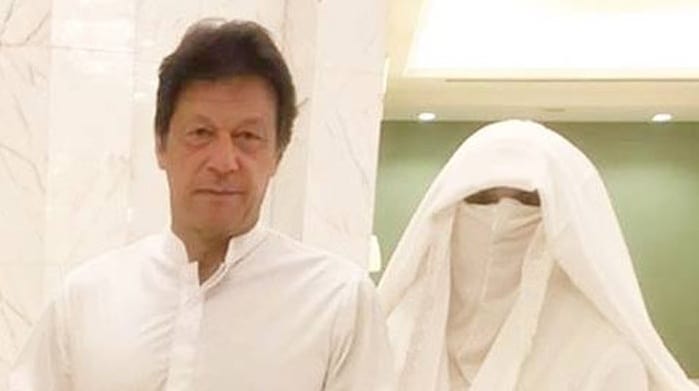A delegation of journalists from prominent media organizations visited Jamia-tur-Rasheed and Al-Ghazali University. The delegation, consisting of educational reporters, toured various academic departments of both institutions.

Upon their arrival, the Chief Patron of Jamia-tur-Rasheed and Chancellor of Al-Ghazali University, Mufti Abdul Rahim, welcomed the delegation. The journalists were then taken on a study tour of several departments, including Dar-ul-Ifta Jamia-tur-Rasheed, the central office of Majma-ul-Uloom Al-Islamia, JTR Media House, the Department of Islamic Jurisprudence, Faculty of Sharia, Fiqh al-Halal, and the Manai Association. During the tour, Azhar Shah provided briefings.
The delegation was shown video documentaries introducing the educational system at Jamia-tur-Rasheed. Later, Mufti Abdul Rahim addressed the delegation, stating that the solution to the challenges facing our state lies in the integration of religious and modern education. He emphasized that Islam does not distinguish between religion and the world. Jamia-tur-Rasheed has bridged the gap between religious and modern education by allocating 30% of time for modern education alongside religious studies, and vice versa. He stressed that the nation cannot overcome its challenges without reforming its educational system. For the first time, religious schools (madrasas) have been brought under the Ministry of Education, which has made registration easier and provided numerous benefits.

He shared that over 18,000 madrasas have been registered under the Ministry of Education, with 2.2 million students enrolled. The Ministry has also distributed modern education books to more than 100,000 students. Furthermore, obtaining religious study visas for foreign students has become easier, with over 1,600 foreign students now studying in Pakistan. Courses to teach vocational skills have also been introduced, and 2,503 students have participated in the Prime Minister’s Youth Skills Training program, receiving a total of 75 million rupees to start their own ventures. He warned against dismantling the current system and pushing these 18,000 madrasas to protest.
Mufti Abdul Rahim also highlighted the curriculum reforms at Jamia-tur-Rasheed, including the teaching of four international languages—Arabic, English, Turkish, and Chinese—alongside the traditional Islamic studies. Information technology courses are also offered to students.

He further explained that Al-Ghazali University’s educational system is centered around training in ten key areas: love for the country, viewing the nation’s loss as personal loss, maintaining unity, minimizing political and religious differences, ensuring discipline and order, fulfilling the rights of the state and citizens, serving others, being willing to relinquish personal rights, striving for hard work, empowering the nation with skills, and promoting self-sufficiency both individually and nationally to avoid dependency.
He urged the media representatives to be mindful of national interests in the race for breaking news, stressing that if state institutions are not protected, the country itself will be at risk.

Dr. Zeeshan Ahmed, Vice Chancellor of Al-Ghazali University, discussed the university’s efforts to bridge the gap between religious and modern education. He mentioned that Al-Ghazali University now offers programs like BS in Islamic Studies, BS in Education, and BS in Islamic Finance. Additionally, MS programs in Islamic Studies, Islamic Banking & Finance, and weekend MS Islamic Studies for religious scholars have started, with hundreds of students already enrolled. The university has also launched its city campus, known as GU Tech, in Korangi, offering programs like BBA, BS in Computer Science, and MS in Islamic Banking & Finance for professionals.

Mufti Mohammad, General Secretary of Majma-ul-Uloom Al-Islamia, also addressed the media, and Maulana Usman Yusuf presented a detailed presentation on behalf of the organization.
The delegation included representatives from prominent Pakistani TV channels, newspapers, and web portals.

At the conclusion of the event, the journalists posed questions, and the administration highly appreciated and praised Dr. Umair Haroon, the Project Director of Voice of Sindh, for his insightful questions and contributions.



